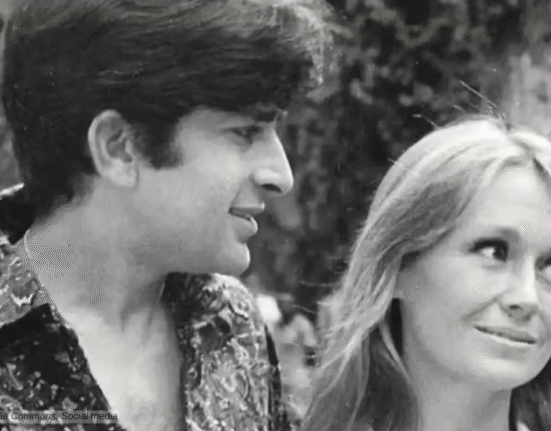Awtar Krishna Kaul or AK Kaul remains a one-of-a-kind figure in Indian cinema, known for his sole directorial effort, “27 Down (1974).” In only one film he established himself as the master of human emotions and a prominent name in Indian New Wave Cinema. His brief career and untimely death cut short a promising trajectory in the New Wave movement.
Early Life and Career
Awtar Krishna Kaul was born on September 27, 1939, in Srinagar, Kashmir, India. He grew up in a modest family with five siblings. His father, a railway employee, influenced his later themes. The family moved to Delhi in 1949, exposing him to an urban life and a much bigger horizon. Kaul developed an early interest in art and literature, shaping his future path.
Kaul studied at Punjab University in Chandigarh during the early 1960s. He excelled academically before pursuing film direction at the City University of New York’s Institute of Film and Television Technology. His education included exposure to experimental filmmakers like Stan Brakhage and Robert Bresson, influencing his cinematic style.
Kaul joined the Ministry of External Affairs in 1958 and moved to the United States in 1960. He worked as a news brief writer for the Associated Press and later with the British Information Services in New York. This role allowed him to meet his wife, Anne, and enroll in a filmmaking course. He returned to India in 1970, joining Merchant Ivory Productions as an assistant director for “Bombay Talkie (1970).” This marked his entry into cinema, leading to his own project.
27 Down

“27 Down,” Kaul’s only film, released in 1974, adapts Ramesh Bakshi’s novel “Athara Sooraj Ke Paudhe.” The story follows Sanjay (M.K. Raina), a train ticket checker who abandons his artistic dreams under his father’s pressure. Shot on the Bombay-Varanasi Express, it uses flashbacks to depict his regret and brief romance with Shalini (Rakhee). The film employs a handheld Arriflex 2c camera, capturing black-and-white scenes at Mumbai’s Chhatrapati Shivaji Terminus. Hariprasad Chaurasia and Bhubaneswar Mishra composed the music, while Bansi Chandragupta handled production design.
The film won National Awards for Best Feature Film in Hindi. It also got the National Award for best cinematography for Apurba Kishore Bir. The film ge widespread critical acclaim and was dubbed a “mini-miracle” by a leading magazine.
Kaul stands out for his one-film legacy, a rarity in cinema. His focus on personal conflict over commercial tropes sets him apart. He blended Western influences and complex existential and psychological themes with Indian realism, creating a distinct voice. His death shortly after 27 Down’s release adds to his mystique, leaving a single work to define his career.
Awtar Krishna Kaul – The Genius
Kaul’s artistic merits lie in his minimalist storytelling and visual poetry. He used black-and-white cinematography to emphasize mood, drawing from Bresson and Dreyer. His intellectual pursuits included reading obscure works, like choosing Bakshi’s novel from a Delhi library’s least-read section. He explored human psychology and societal pressure, reflecting a deep engagement with literature and philosophy.


Kaul’s directorial process relied on improvisation and location authenticity. He shot “27 Down” on moving trains and crowded platforms, avoiding makeup to maintain realism. He emphasized naturalistic performances, guided by a handheld camera to capture spontaneity. Kaul collaborated closely with cinematographer Apurba Kishore Bir, using wide lenses for contrast and shadow. The process took two years, reflecting his meticulous approach.
Apurba Kishore Bir, cinematographer of 27 Down, calls Kaul “hugely talented” and mourns his “great loss” to cinema. Vinod Kaul, his nephew, constantly wrote about him and highlights his contribution. His unvavering efforts introduced Kaul and his work a new to younger generation. He also gave a glimpse of his personal life, his bond with family and his personal ambition. At the time of his death he was working on a script called “Chandu,” which remain unfinished. Critics praise 27 Down’s lyrical quality, with the New York Times noting its “accurate and humorous images.”
Tragedy
Kaul died on July 20, 1974, at age 35, in a drowning accident near Mumbai. He attempted to save a friend who slipped into the Arabian Sea. Rescued but unable to survive, he passed away the same week “27 Down” won national awards. The irony of his death coinciding with acclaim underscores his truncated legacy. His wife, Anne, and family struggled with debts and distribution afterward.
Awtar Krishna Kaul’s life and work embody a brief but impactful presence in Indian cinema. He occupies a foundational role in India’s New Wave cinema of the 1970s. His work emerged alongside films like “Bhuvan Shome (1969)” and “Uski Roti (1970),” challenging mainstream narratives. 27 Down aligns with the movement’s focus on realism, location shooting, and social commentary, influencing generations of filmmakers. His untimely death limited his impact, but his film remains a benchmark. Despite his short film career, he is counted among some of the most unconventional filmmakers, like Mani Kaul and Kumar Shahani.
Awtar Krishna Kaul on IMDB













Leave feedback about this